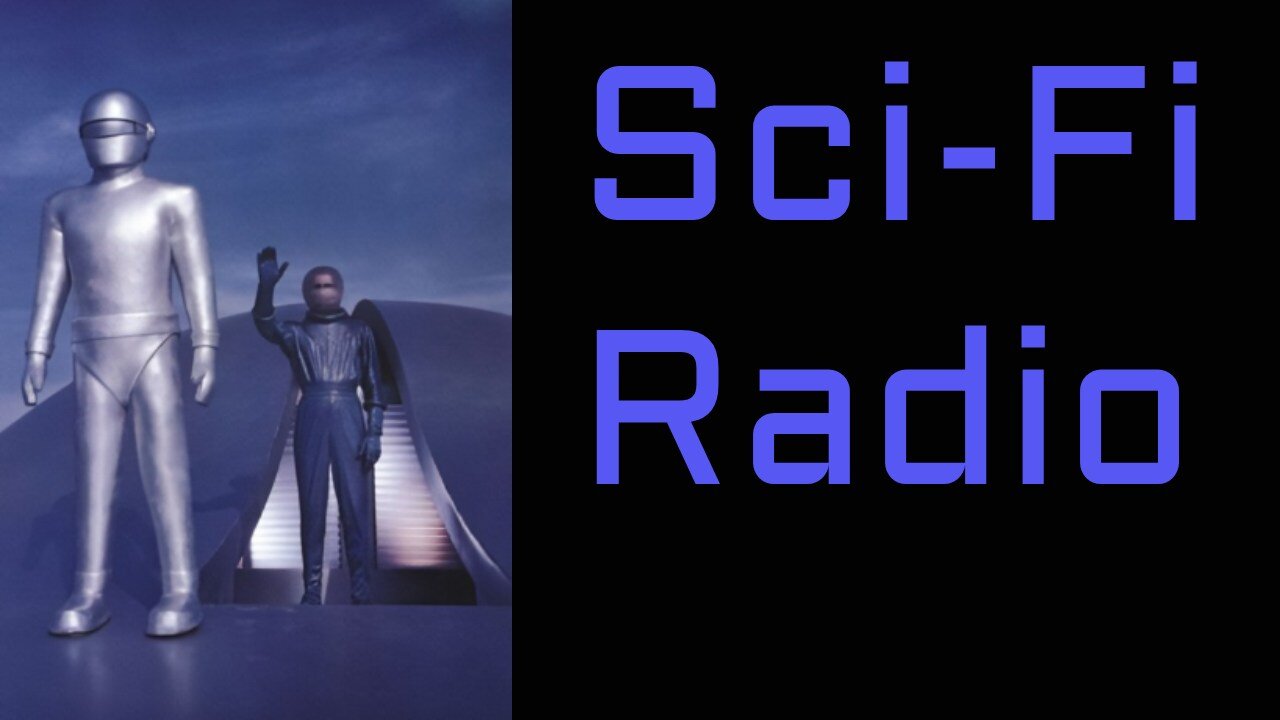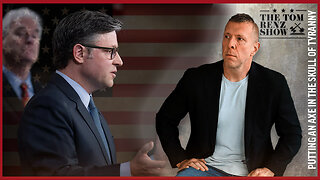Premium Only Content

Dimension X - 1950 Report on the Barnhouse Effect
The following writeup is from the OTRCAT website: www.otrcat.com
Precursors of the Science Fiction
Literary precursors of the Science Fiction genre include Jonathan Swift's "Gulliver's Travels" (1726), Mary Shelley's "Frankenstein' (1818), and Robert Louis Stevenson's "The Strange Case of Dr. Jekyll and Mr. Hyde" (1886). Jules Verne's "Voyage to the Center of the Earth" (1864) and H. G. Wells' "The Time Machine" (1895) were also important works in the field of Science Fiction.
At the beginning of the 20th century amid the Industrial Revolution, Science Fiction was coming into its own. Many short stories by Science Fiction writers such as Jules Verne were commonly included in regular adventure and pulp magazines. In 1926 Hugo Gernsback founded the first American magazine dedicated exclusively to the emerging genre of Science Fiction called "Amazing Stories." The pulp magazine "Amazing Stories" featured stories by well-known Science Fiction writers including H. G. Wells, Jules Verne, and Edgar Allen Poe but also introduced new authors and serials to the public.
Juvenile Serials of the 1930s
The first science fiction old time radio shows were primary adventure serial shows intended for juveniles co-opted with a scientific theme, most notably Buck Rogers and Flash Gordon. These shows for children tended to glamorize scientific progress and featuring larger than life heroes.
(1932-1936, 1939, 1940, 1947) was first published in "Amazing Stories" in 1928 and the adventure hero moved to comic strips, film, movies, radio, and eventually television.
Early Science Fiction on the Airwaves
Within the horror and drama genres there were some breakout science fiction radio plays including Arch Oboler's radio plays Lights Out "Meteor Man" and "The Rocket Ship" Radio Guild Theater "The Man Who Was Tomorrow", Columbia Workshop's "R.U.R." (Rossum's Universal Robots), Favorite Story produced H. G. Wells' "The Time Machine", and Jules Verne's "20,000 Leagues Under the Sea" among others.
The most memorable s science fiction old time radio from the 1930s was Orson Welles War of the Worlds on Mercury Theater aired on Halloween (October 30, 1938). This broadcast had a phenomenal impact on the nation because Welles blurred the lines between fiction and fact, essentially convincing America that the Martians were invading.
Earliest Attempts at Science Fiction Drama
Radio was slow to produce a series dedicated to serious adult science fiction drama with the first show dedicated to Science Fiction airing in 1950. There were some attempts at science fiction on Escape, Suspense, Lights Out and others. An earnest attempt in sort of science fiction radio show includes little known and very rare Latitude Zero in 1941. Some argue that that Beyond Tomorrow written by Robert Heinlein was the first Science Fiction show aimed for adults, with the first episode created on February 23, 1950. However, Beyond Tomorrow was dropped after three episodes and credit for the first adult science fiction series is often given to 2000 Plus.
2000 Plus (1950) aired to radio audience on March 15, 1950.
New Juvenile Radio Shows
When Science Fiction expanded into adult fiction, the wonder of science fiction didn't leave the juvenile market. Radio shows like Planet Man, Space Patrol, Captain Starr, and Tom Corbett continues to delight young audiences. The newer science fiction juvenile radio shows followed a similar format to their processors Flash Gordon and Buck Rogers.
The Height of Science Fiction Old Time Radio
Many science fiction enthusiasts consider 1950-1960 to be the Golden Era of Science Fiction. This is the decade when the best Science Fiction old time radio was created. At the same time American's non-fiction world was filled with "duck and cover" exercises, red scare, McCarthyism, and the fears of a Soviet invasion or nuclear annihilation. To many, science fiction with aliens allowed audiences to play out the fantasy of invasion by substituting Communists for aliens.
End of Science Fiction on Radio
When Russian scientists launched Sputnik in 1957, science fiction became more of a science actuality. Inventions thought to only be in science fiction like rockets, televisions, and computers were becoming a reality. The future of entertainment was on televisions that were more ubiquitous in American households and the golden age of science fiction left the airwaves. Luckily many of these recordings were preserved for enjoyment today. Many science fiction old time radio shows survived in completion including Dimension X and X-Minus One.
-
 4:31
4:31
CoachTY
1 day ago $28.61 earnedCOINBASE AND DESCI !!!!
190K13 -
 10:02
10:02
MichaelBisping
1 day agoBISPING: "Was FURY ROBBED?!" | Oleksandr Usyk vs Tyson Fury 2 INSTANT REACTION
110K16 -
 8:08
8:08
Guns & Gadgets 2nd Amendment News
2 days ago16 States Join Forces To Sue Firearm Manufacturers Out of Business - 1st Target = GLOCK
130K93 -
 10:17
10:17
Dermatologist Dr. Dustin Portela
2 days ago $19.43 earnedOlay Cleansing Melts: Dermatologist's Honest Review
164K17 -
 1:02:20
1:02:20
Trumpet Daily
2 days ago $51.93 earnedObama’s Fake World Comes Crashing Down - Trumpet Daily | Dec. 20, 2024
119K86 -
 6:29
6:29
BIG NEM
1 day agoCultivating God Mode: Ancient Taoist NoFap Practices
86.2K22 -
 30:53
30:53
Uncommon Sense In Current Times
2 days ago $12.28 earned"Pardon or Peril? How Biden’s Clemency Actions Could Backfire"
95.3K10 -
 40:01
40:01
CarlCrusher
1 day agoSkinwalker Encounters in the Haunted Canyons of Magic Mesa - ep 4
86.3K10 -
 59:44
59:44
PMG
2 days ago $11.69 earned"BETRAYAL - Johnson's New Spending Bill EXPANDS COVID Plandemic Powers"
84.8K52 -
 6:48:50
6:48:50
Akademiks
1 day agoKendrick Lamar and SZA disses Drake and BIG AK? HOLD UP! Diddy, Durk, JayZ update. Travis Hunter RUN
202K37